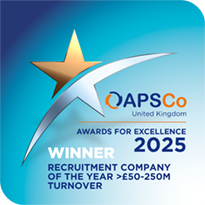From April 2026, new proposed umbrella non-compliance liability rules could impact companies engaging temporary contractors.
Understanding the umbrella legislation changes
The UK government recently published draft legislation that proposed the introduction of a new chapter, chapter 11, to Part 2 of the Income Tax (Earnings and Pensions) Act 2003 (ITEPA). The change would come into effect from April 2026. This legislation is designed to tackle non-compliance in the umbrella company market, with the announced changes adding further accountability within the contracting chain.
The legislation introduces joint and several liability for unpaid PAYE tax, meaning that clients and intermediaries could be held responsible for tax liabilities if an umbrella company fails to meet its obligations. Adding a level of risk for both clients and intermediaries and reinforcing the need to ensure recruitment practices are compliant.
Key changes in the draft legislation
We take a look at the changes that have been included in the draft legislation.
What is an umbrella company under the new rules?
First, it’s important to understand the terminology. The draft defines an umbrella company as a third party that employs a worker and supplies their services to a client, without the worker having a material interest in the company. The legislation applies when:
A worker provides services to a client via an umbrella company
The umbrella company receives payment for those services
Joint and several liability – what it means for companies
Under the new Chapter 11 of ITEPA clients, agencies, and umbrella companies may all be jointly and severally liable for unpaid PAYE tax.
Under the proposed rules:
When an agency is involved: The recruitment agency holding the direct contract to supply workers will be responsible for any unpaid payroll taxes
When no agency is involved: The end client becomes liable for those tax obligations
While the umbrella company remains the primary party responsible for paying taxes, these new rules introduce a secondary layer of accountability to ensure compliance.
This means that if an umbrella company does not pay the correct tax, your business could potentially be liable as well, even if you’re not directly responsible for payroll. Making it crucial to ensure you’re working with reputable recruitment companies who have the compliance processes in place to mitigate risk.
What hiring managers and HR professionals need to know
If you’re involved in contractor engagement within the engineering supply chain, here’s what you should consider:
Due diligence
Having the right checks and balances in place to manage due diligence is more important than ever. You must ensure any umbrella company that temporary contractors supporting you use are compliant.
To have full visibility we’d recommend working with a small and trusted preferred supplier list, engaging recruitment agencies that can demonstrate they have compliance procedures in place to manage umbrella companies and ensure they are making the correct PAYE deductions. Here at NRL we undertake audits and inspections on our approved accountancy suppliers, to ensure they maintain the same high standards of compliance as we do.
Audit your supply chain
To identify any potential risks if you’re not 100% confident about how compliant your suppliers and umbrella companies are, then it’s good business practice to undertake a supply chain audit.
If you don’t have the capacity or capability to set this up internally, then you could consider engaging an expert. Linx is a business that’s part of the NRL Group, and specialise in helping organisations effectively manage their workforce requirements, projects and compliance. They work with organisations to create tailored supply chain audits that undertake an in-depth review of their supply chain partners, to ensure they’re adhering to industry regulations. They identify any potential risks of non-compliance and provide tangible recommendations to help improve operations.
Review contracts
Engage the help of legal experts to check any contracts you have in place with recruitment agencies and umbrella companies, to understand where your current liability falls and any potential changes you’ll need to make.
Common questions you may have about the new umbrella legislation changes
Will this affect all contractors?
No, only those engaged through umbrella companies. Direct hires, PAYE contractors directly paid by a recruitment agency, and PSC (Personal Service Companies) are not affected by this change in legislation.
What if I use a recruitment agency?
Make sure you have processes in place to check your recruitment agencies, and their approved umbrella companies, are compliant.
When will the change come into effect?
At this stage the proposed changes are only draft legislation and will need to be formalised before they can come into effect. The timescales given intend for the change to be implemented on payments made on or after 6 April 2026.
Partnering with a Recruitment Agency for Compliance
Navigating these changes can be complex. Partnering with a recruitment agency like NRL can help you:
Manage umbrella companies to ensure compliance, working only with approved suppliers that have been audited
Mitigate risk by managing contractor engagement through a compliant supply chain
Stay informed about legislative changes and their impact on your hiring practices
At NRL, we specialise in supporting HR teams and hiring managers across the engineering supply chain, ensuring that their contractor workforce is engaged safely and compliantly.
Preparing for the 2026 umbrella legislation
The upcoming changes to umbrella company liability demonstrates why it’s important for businesses to ensure they have taken steps well in advance of April 2026 to mitigate the risk of non-compliance incurring substantial financial repercussions.
If you have contractors working through umbrella companies within your operations, it’s crucial you have processes in place to check these suppliers are operating compliantly and meeting their PAYE tax implications.
Need help navigating these changes?
Contact NRL today to discuss how we can support your contractor engagement strategy and ensure full compliance.


.png)


.png)


